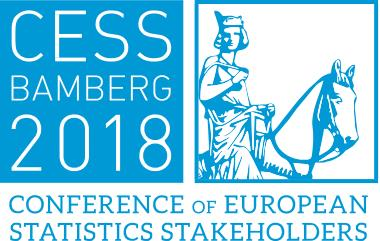The motivation behind the application of indirect questioning designs is their possible positive effect on the respondents’ willingness to cooperate. Whereas the privacy protection objectively offered by these methods has a direct effect on the estimator’s efficiency, it is the subjectively perceived protection which affects the respondents’ willingness to cooperate. For the discussion of these different aspects of privacy protection, a family of such designs is presented as representative of indirect questioning designs. Measures are suggested that formalize the difference between the objectively offered and the subjectively perceived privacy protection. Different features of indirect questioning designs, influencing the perceived privacy protection, are discussed particularly for the crosswise randomized response variant in order to avoid underestimations of the true levels of privacy protection.
14:30 - 15:30
Special Topic Session
Room: Hegelsaal II
Organiser/s:
Maurizio Vichi
Chair: Tasos Christofides, ESAC
The large number of surveys conducted by public or private organizations increases response burden and as a result nonresponse rates are reaching alarming levels. In particular when the issues under investigation are stigmatizing or sensitive, many people choose not to participate, or provide untruthful and misleading responses. One way to solve the problem is to implement indirect questioning techniques. These are techniques, which generate data from which the researcher is able to estimate parameters of interest, while at the same time they cannot infer whether a specific respondent has the stigmatizing or sensitive characteristic. A central issue in these techniques is protecting the privacy of participants and to what extent their privacy is protected. The session will put emphasis on various aspects of the protection of privacy in public surveys including the protection of privacy from the respondent’s point of view.
The large number of surveys conducted by public or private organizations increases response burden and as a result nonresponse rates are reaching alarming levels. In particular when the issues under investigation are stigmatizing or sensitive, many people choose not to participate, or provide untruthful and misleading responses. One way to solve the problem is to implement indirect questioning techniques. These are techniques, which generate data from which the researcher is able to estimate parameters of interest, while at the same time they cannot infer whether a specific respondent has the stigmatizing or sensitive characteristic. A central issue in these techniques is protecting the privacy of participants and to what extent their privacy is protected. The session will put emphasis on various aspects of the protection of privacy in public surveys including the protection of privacy from the respondent’s point of view.
The two Different Aspects of Privacy Protection in Indirect Questioning Designs
Reference:
Th-STS03-01
Session:
Protection of Privacy in Public Surveys
Presenter/s:
Andreas Quatember
Presentation type:
Oral presentation
Room:
Hegelsaal II
Date:
Thursday, 18 October 2018
Time:
14:30 - 15:30
Session times:
14:30 - 15:30
